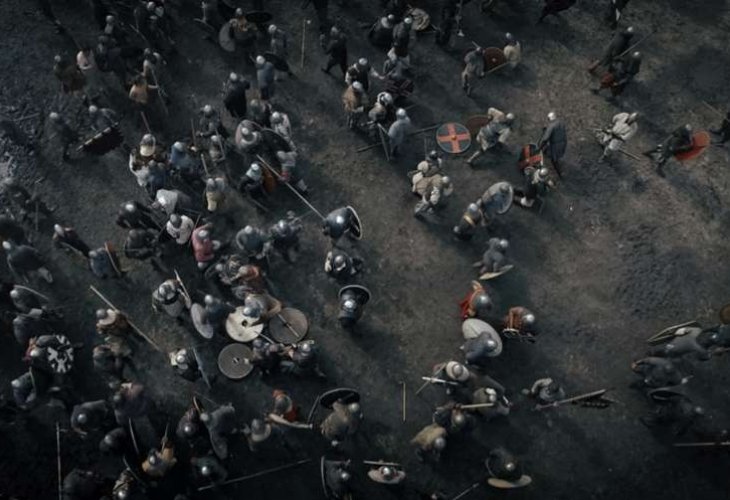Facts in Judaism
The Hidden Dangers of Disputes in Judaism
How Conflict Harms Everyone—Even the Innocent
 (Photo: shutterstock)
(Photo: shutterstock)Conflict has consequences. In Jewish tradition, disputes don’t just hurt the people directly involved—they can affect entire families, communities, and even the world. The Midrash (ancient rabbinic teachings) offers powerful lessons about the spiritual and physical dangers of machloket (dispute), reminding us why peace should always be the goal.
Disputes Can Harm Even the Innocent
The Torah describes the rebellion of Korach against Moshe, a moment when conflict shook the entire Israelite camp in the wilderness. The punishment was so severe that even infants—those usually exempt from judgment—were swallowed alive. As the verse says, “Their wives, their sons, and their little ones…” (Numbers 16:27). The message is clear: when division spreads, no one is left untouched.
Stirring Conflict Is a Serious Sin
According to the Midrash, even someone who hasn't physically harmed others but stirs division is considered wicked. Simple acts—like threatening someone, not repaying debts, or showing disrespect—are grave. But causing fights is even worse. That’s why Moshe calls Korach and his followers "wicked men" (Numbers 16:26). The label reflects the spiritual damage that comes from sowing discord.
The Shame of Causing Division
The Chafetz Chaim, a leading rabbinic authority in the early 1900s, teaches that if people truly understood how Heaven views arguments, they would be overwhelmed with shame. If a private insult causes pain, imagine the shame of being judged before thousands of angels for igniting a dispute. It's a sobering call to pursue peace at all costs.
The Word “Machloket” Reveals the Consequences
Jewish tradition often draws meaning from the letters of Hebrew words. The word machloket (dispute) can be broken down—excluding the Hebrew letter vav—to reveal five disastrous outcomes:
Makah – Plague
Charon – Anger
Likui– Suffering
Kelalah– Curse
Tachlit – Destruction
The more influential the person involved in the conflict, the greater the potential damage.
Disputes Are Worse Than Idol Worship
Our Sages teach that in three cases, God forgave idol worship but did not forgive disputes:
Generation of Enosh – Although idol worship began, the people lived in peace, so God delayed punishment (Genesis 4:26).
Generation of the Wilderness – After the Golden Calf, forgiveness was possible. But each time the Israelites “complained,” it led to plague.
Time of the Judges – Even with Micah’s idol, unity prolonged judgment. But tribal conflict brought devastation (Judges 18:30; 2 Chronicles 13:17, 28:6).
The lesson: Disputes become tools of destruction, turning people against one another.
Arguments Endanger Lives
The Chafetz Chaim notes how a simple dispute between Abraham’s and Lot’s shepherds led to separation. Lot moved to Sodom and nearly died with its sinful people. Disputes don’t just divide—they can lead to physical danger.
Fights Bring Harsh Judgment
The Torah warns that if two people fight and injure a pregnant woman, the consequences could be fatal. The fight—not the injury—triggers the judgment. Disputes escalate quickly, often in unpredictable ways.
Fighting Destroys Homes, Communities, and Nations
Jewish tradition teaches:
Fighting in a home can lead to its destruction.
Fighting in a synagogue can cause the community to collapse.
Fighting in a city can result in bloodshed.
Even disputes between Torah scholars or courts can lead to death and disaster.
As long as there is peace below, there is peace above. But when discord erupts on earth, it causes disturbance in Heaven. As the prophet Amos says, “He builds His upper chambers in Heaven… when His group is united on Earth.”
Final Thoughts: The Call for Peace
Disputes can affect everyone—innocent children, entire communities, and even future generations. Judaism teaches that peace is not just a noble goal; it is a spiritual necessity. From the story of Korach to the teachings of the Chafetz Chaim, we are reminded again and again: the cost of conflict is too high.

